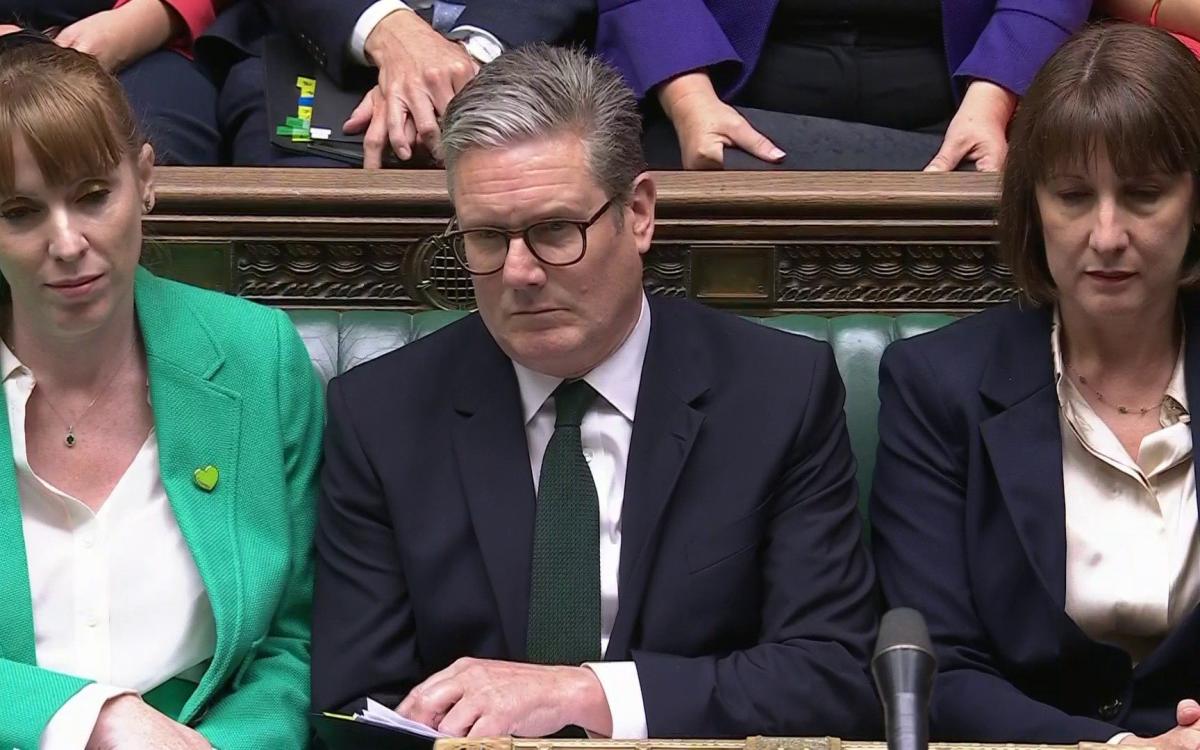
Downing Street is facing the threat of a leak inquiry over reports that the state pension is set to rise by more than £400 next year.
The Tories are poised to raise concerns with the statistics watchdog that the Government briefed out sensitive labour market figures.
On Wednesday the BBC reported on internal Treasury analysis which it said showed the state pension is set to rise by another £400 from next April.
The briefing also inadvertently revealed average wage increases for May to July – a figure which has not yet been published – are set to come in at 3.5 per cent.
The figures emerged as Rachel Reeves battles growing criticism of her decision to withdraw the winter fuel allowance from 10 million pensioners.
The Chancellor has attempted to stymy internal opposition to the plan by pointing to the big rises in the state pension as a result of the Triple Lock.
She has appeared to argue that the increases, including a £900 boost for this year, mean that many pensioners can afford to lose the payment.
Statistics must only be disclosed to ‘eligible person’
Tory shadow ministers are now preparing to ask the UK Statistics Authority whether the leak has breached any rules on access to sensitive economic data.
A source said: “The decision by the Labour Party to distribute provisional internal figures to the media as a smokescreen for the furor erupting over their decision to cut winter fuel payments is a damning indictment of the ethics at the heart of this Labour Government.”
Some statistics are provided to the Treasury ahead of their release, but the rules say they must only be disclosed to “an eligible person”.
Treasury sources suggested the £400 figure briefed to the BBC may have been based on other figures, such as publicly available forecasts.
It comes after Rishi Sunak accused the Prime Minister of prioritising “train drivers over vulnerable pensioners” by slashing the winter fuel allowance.
The Tory leader claimed Sir Keir Starmer had chosen to “take money away” from around 10 million retirees to hand bumper pay rises to the rail unions.
In a fiery PMQs clash he said: “It was his decision, and his decision alone, to award a train driver on £65,000 a pay rise of almost £10,000.
“And it was also his decision that a pensioner living on just £13,000 will have their winter fuel allowance removed.
“Can the Prime Minister explain to Britain’s low-income pensioners why he has taken money away from them whilst at the same time giving more money to highly paid train drivers?”
Click here to view this content.
Sir Keir said Labour had to “clear up the mess left by the party opposite” as he said he had inherited “absolute chaos” from his predecessor in No 10.
He repeated his claim that the Tories had left behind a £22 billion blackhole and the Government had no choice but to rein in spending.
And he also cited figures in the Commons which suggested the value of the state pension will rise by £1,000 over the next five years.
Sir Keir and Ms Reeves are facing a growing rebellion over cutbacks to the allowance ahead of a crunch Commons vote next week.
The Chancellor announced in July that the currently universal benefit would become means tested, meaning that only those on pension credit will get it.
As a result around 10 million retirees who currently receive the handout, worth £200 or £300, will not do so for the first time this winter.
Ms Reeves has said the move will save £1.4 billion this year, helping the Government to balance the books after it inherited a fiscal black hole from the Tories.
Click here to view this content.
However, more than a dozen Labour MPs have now voiced concerns over the move, including eight who have signed a motion urging her to pause it.
Stella Creasy, a former frontbencher, became the latest to intervene, saying No 10 should make savings on Private Finance Initiative schemes instead.
“Before we ask pensioners to pay more for heating, we should ask how we pay less for PFI,” she wrote in an article for the Labour List website.
PFI agreements are long-term contracts given to the private sector to finance big public infrastructure projects such as schools and hospitals.
They allow the Exchequer to spread the cost of major investments, but have been criticised for overruns. Many were struck by the last Labour government.
Sir Keir is set to call a vote next Tuesday on the move to scale back the winter fuel allowance after caving to pressure to give MPs a say.
Despite their concerns any rebellion is not expected to be widespread, whilst the Prime Minister commands a huge 158-strong majority.
EMEA Tribune is not involved in this news article, it is taken from our partners and or from the News Agencies. Copyright and Credit go to the News Agencies, email news@emeatribune.com Follow our WhatsApp verified Channel





